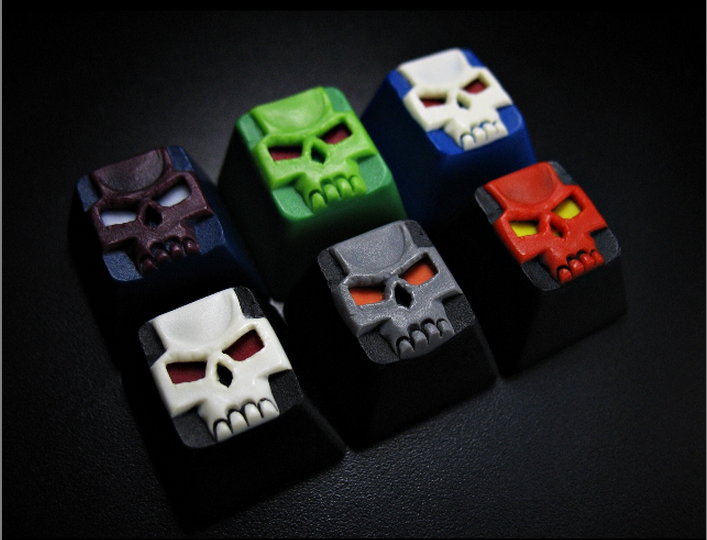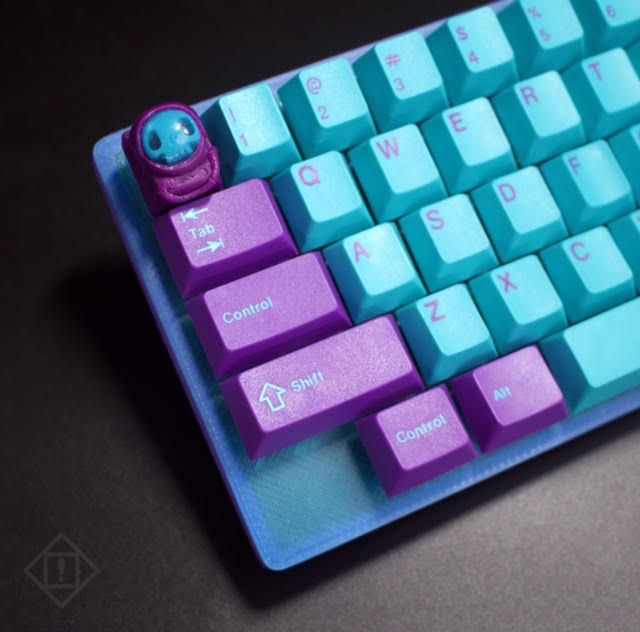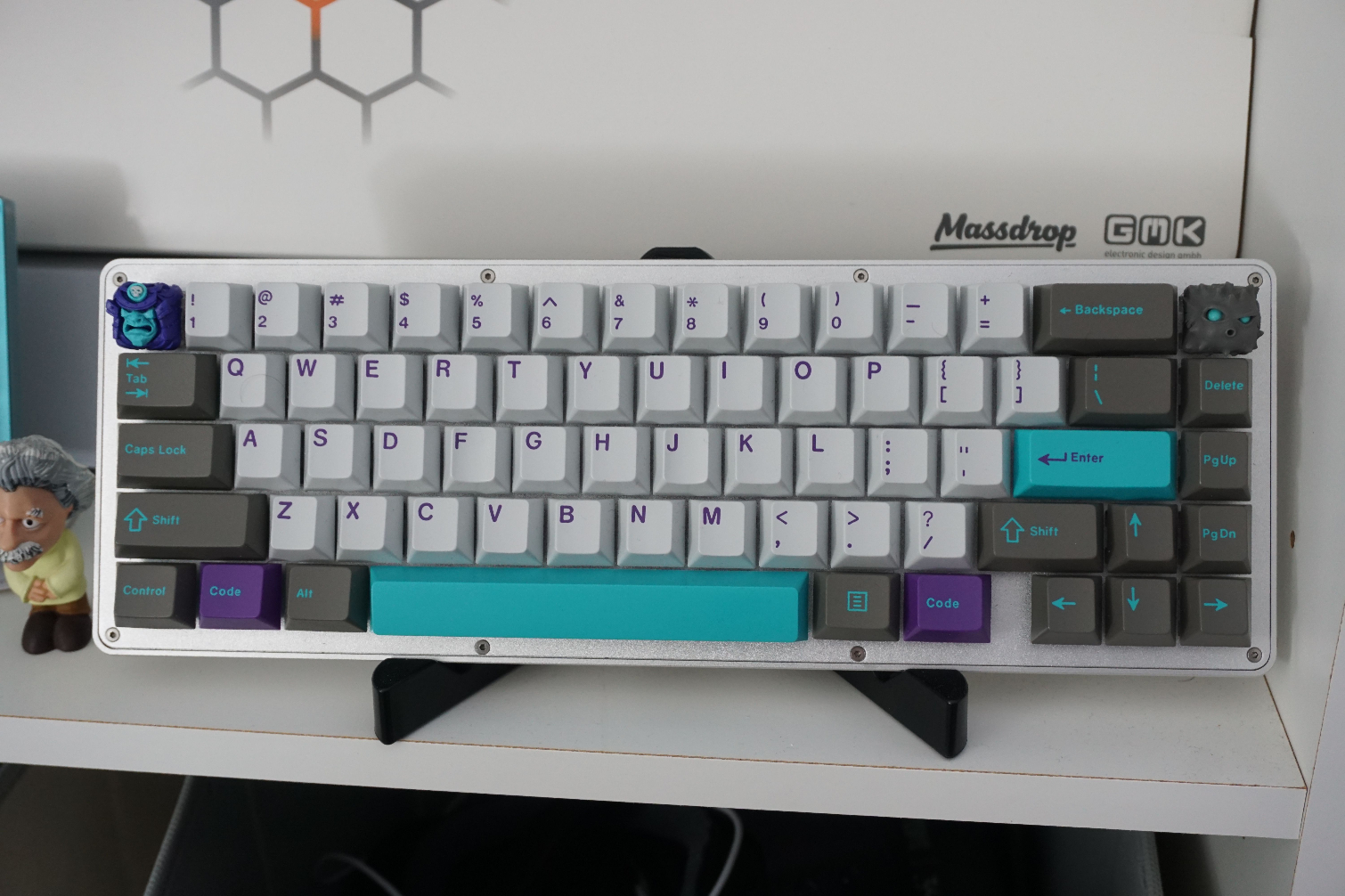Inside The Artisan Keycap Market: Bartering And Obsession
Replacing the keycaps on your mechanical keyboard is one of the easiest ways to customize it. All you need is a keycap-pulling tool and some snazzy replacement keycaps. Maybe that's a full set of keycaps, or perhaps just one or two extremely pretty ones. Some of the most popular so-called "artisan" keycaps are so rare that you can't even buy them outright. Sometimes an owner might offer to sell one for hundreds of dollars, but more often it’s a question of trades. The barter system is alive and well in this insular, and sometimes obsessive community of keyboard enthusiasts. But why is it like that?
Artisan Keycaps
Artisan keycaps come in all shapes, sizes, and materials, but most they're commonly composed of plastic resin and occupy the same volume as a 1-unit key on your keyboard. What makes them artisan keycaps is that someone (the artisan) designed and produced them by hand.
Most artisan keycaps start with a sculpt created in clay, and the designs are surprisingly varied. There are skulls, animals, and various types of abstract art. The sculpt is used to create a mold, which is where the actual keycaps are casted (usually under vacuum). Some keycaps are created with a single color of resin, whereas others contain multiple "shots" of colors. Casting these designs can consist of a dozen or more steps, so it's a time-consuming process. Even so, because these caps are handmade, they sometimes have imperfections that make them unsellable.
Most keycaps are produced to fit on the standard MX switch "cross" stems, but there are also plenty compatible with less common Topre switch stems. A few even have hybrid "TMX" designs that fit on either stem. If you're wondering which type of switch your mechanical keyboard has, it's almost certainly MX. Topre boards are more expensive and harder to find, so there's virtually no one on the planet using a Topre keyboard who doesn't know they're using one.
Artisan keycaps are often cast in colors that match popular keyset colorways (that is, a specific range or combination of colors). Put the right things together, and they look like they were meant to be. In order to get a popular artisan keycap, you need to be actively watching sites like the "mechmarket" keyboard subreddit and the Geekhack forums. Makers of these caps post raffles, sometimes completely without warning. Winners are usually selected by a random number generator (RNG).
If you "win" a raffle, all you get is the chance to buy a keycap, usually for around $20 to $80. The cost and number of winners varies from one sale and artisan to the next. One thing is certain, though: The demand always vastly outstrips supply.
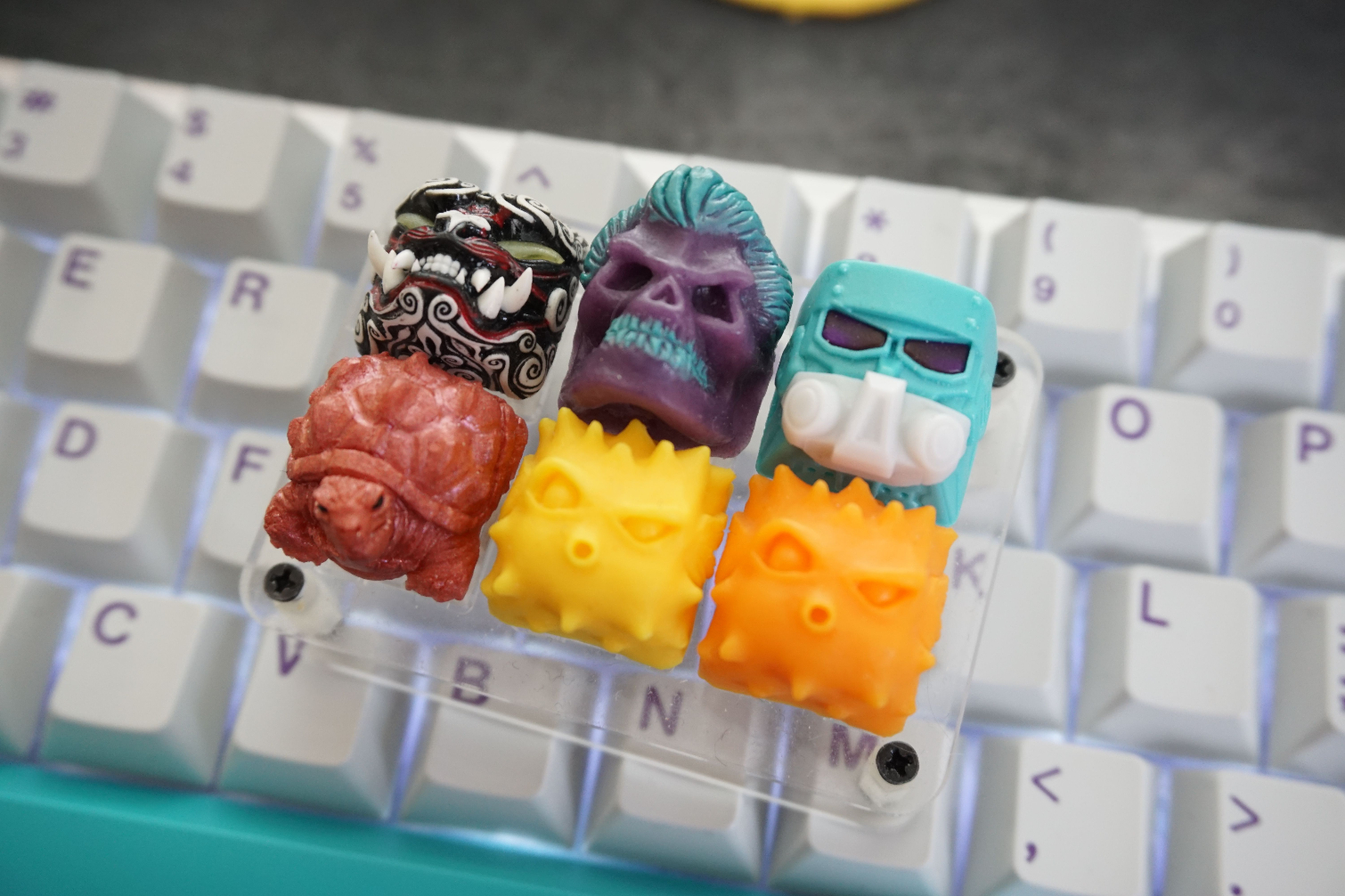
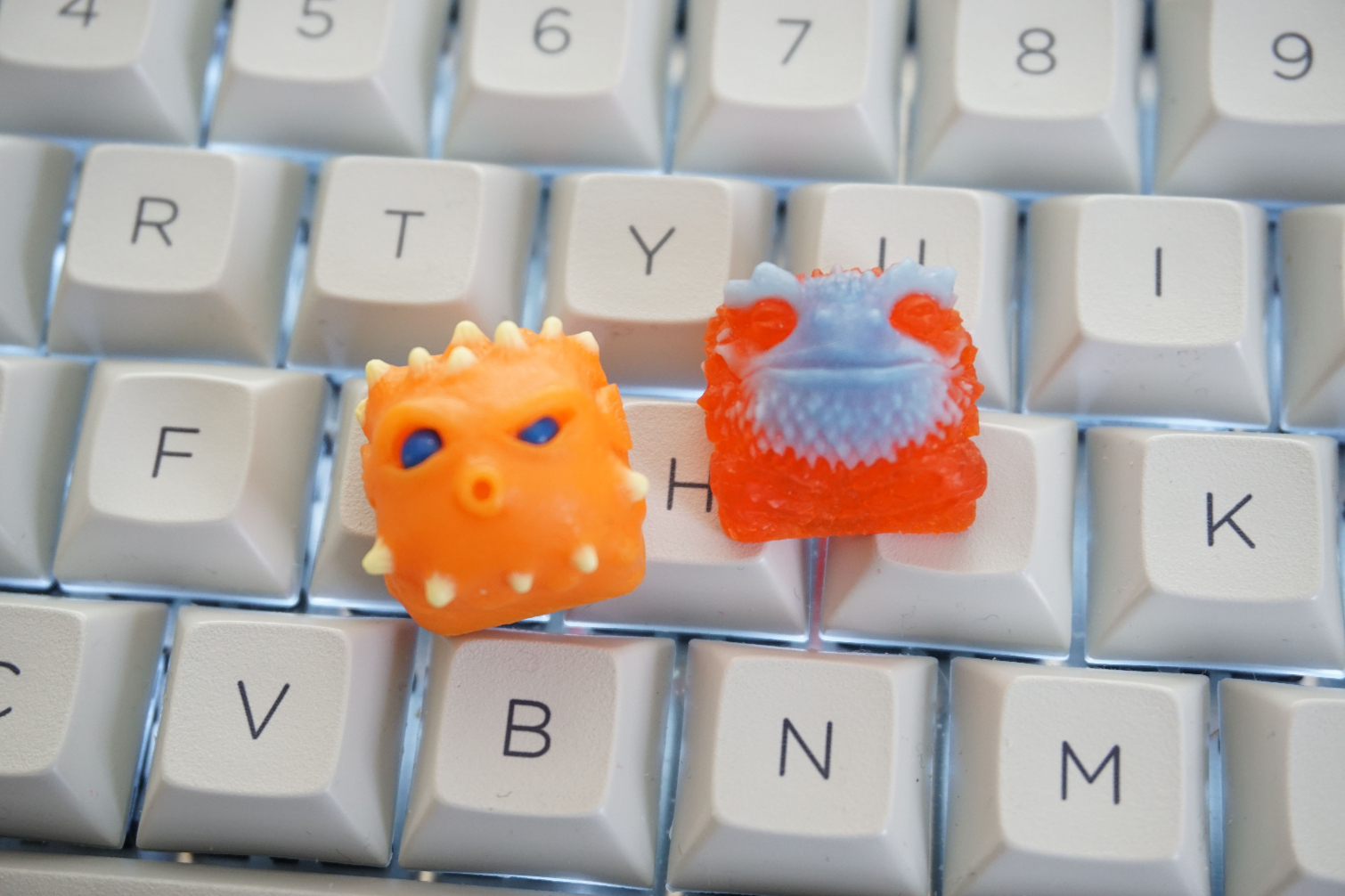
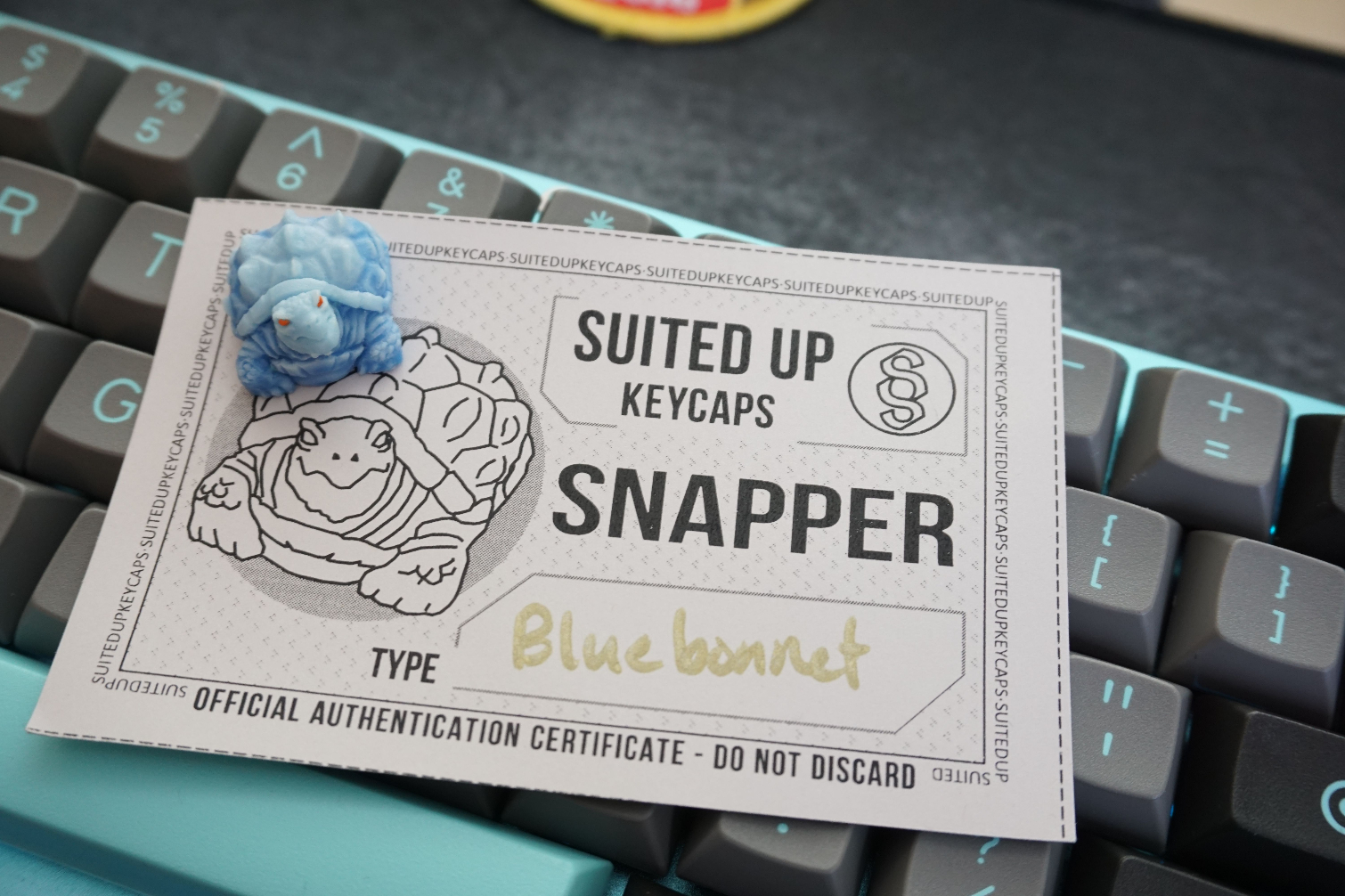
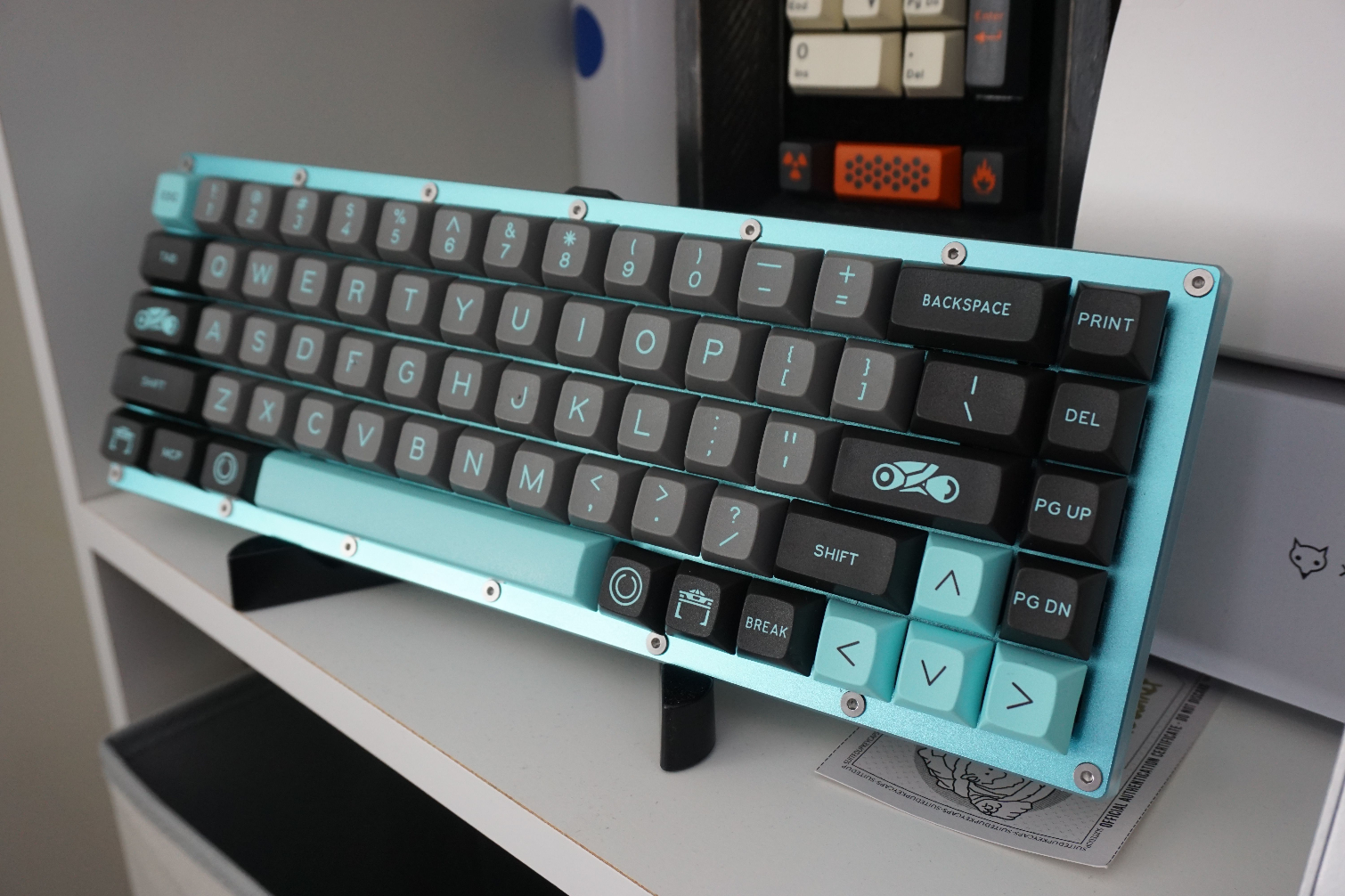
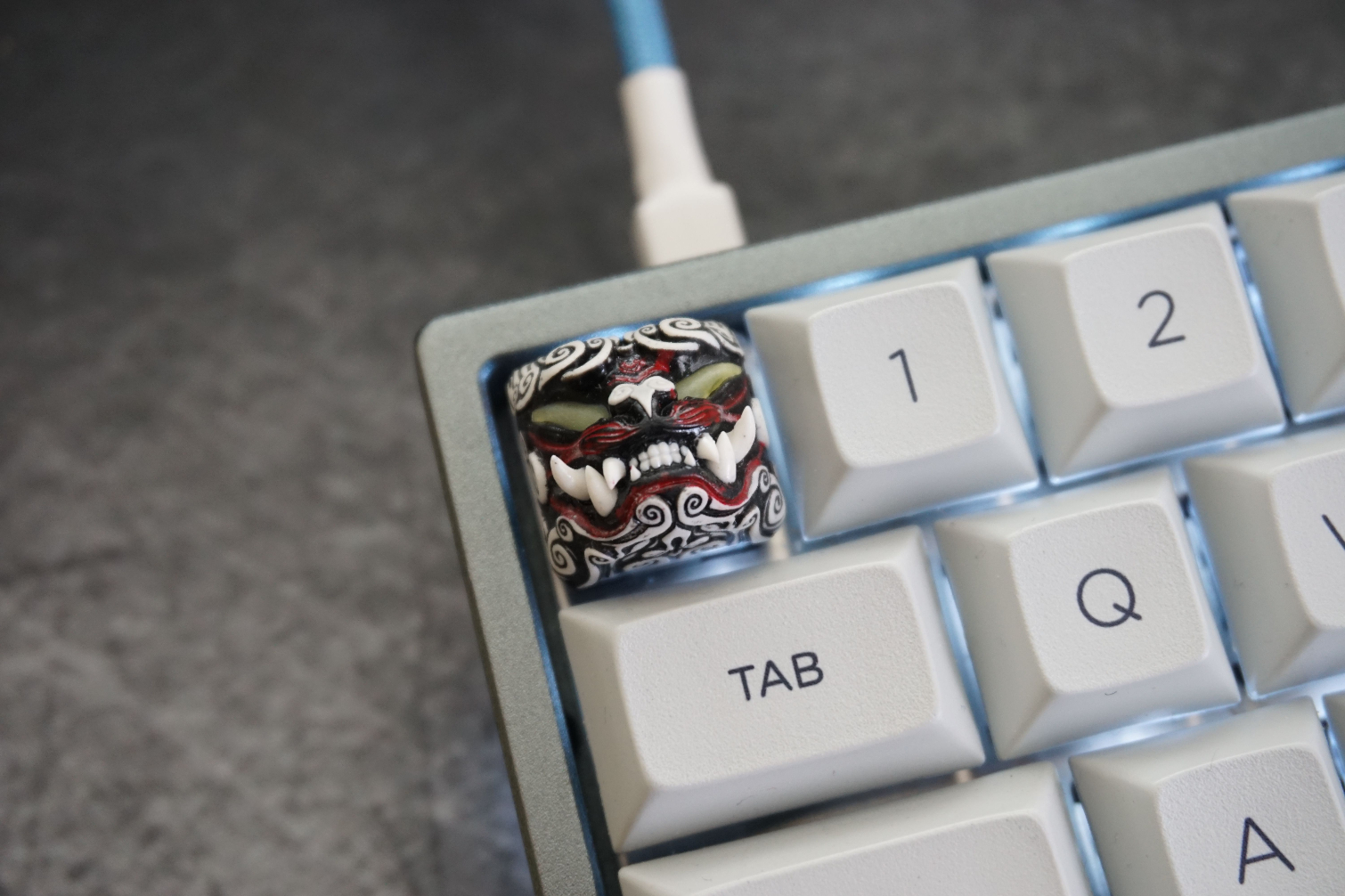
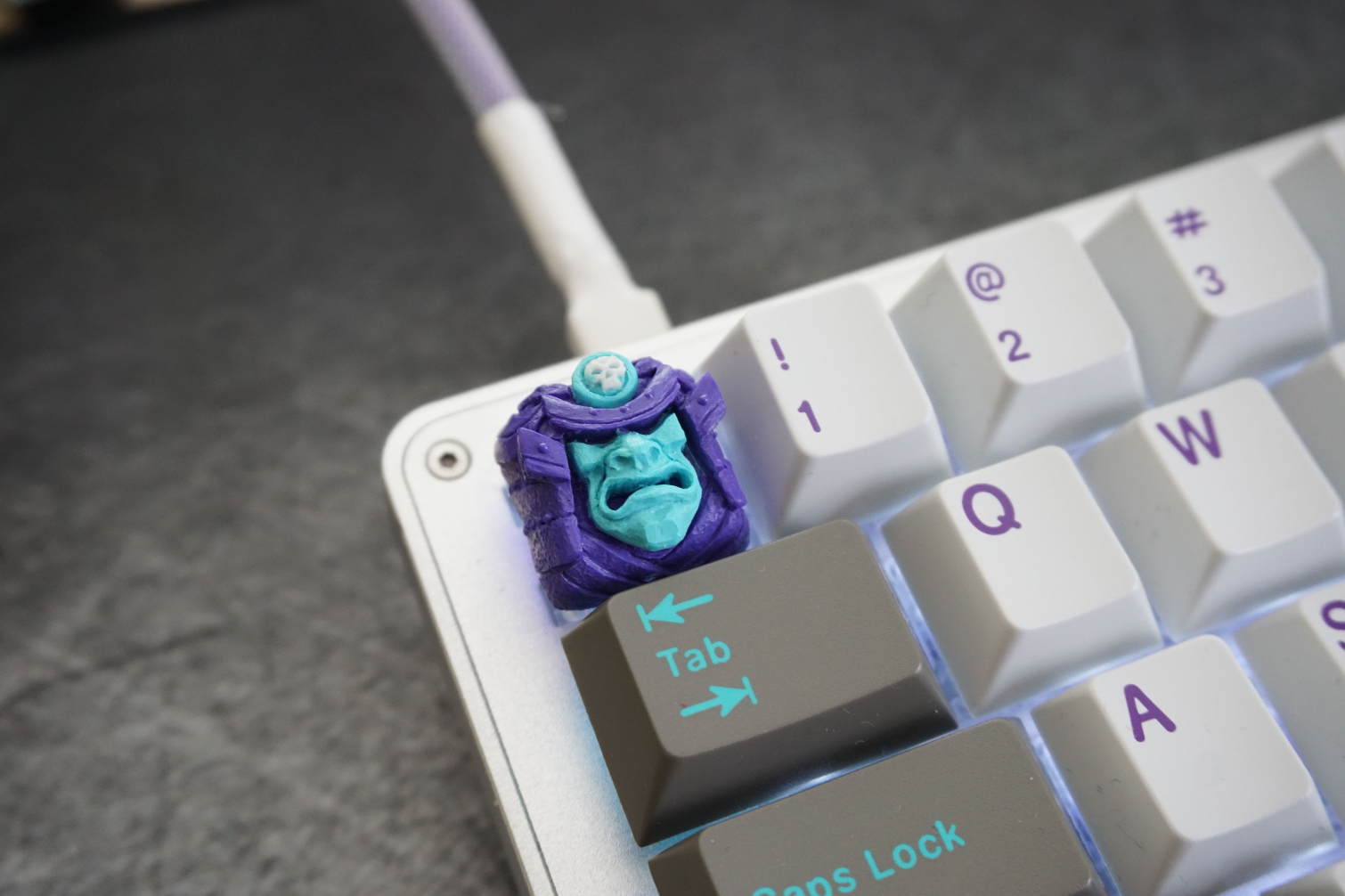
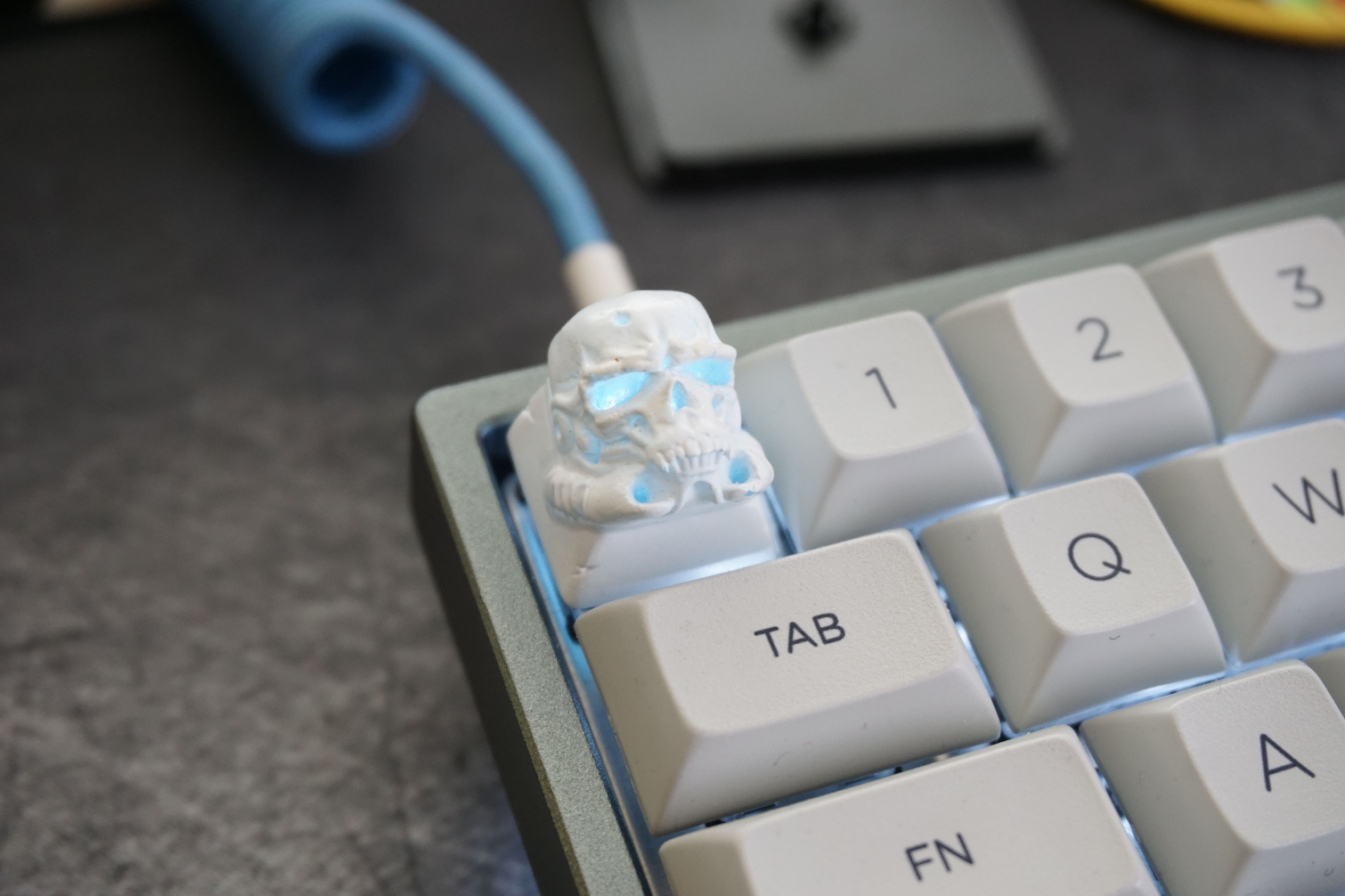
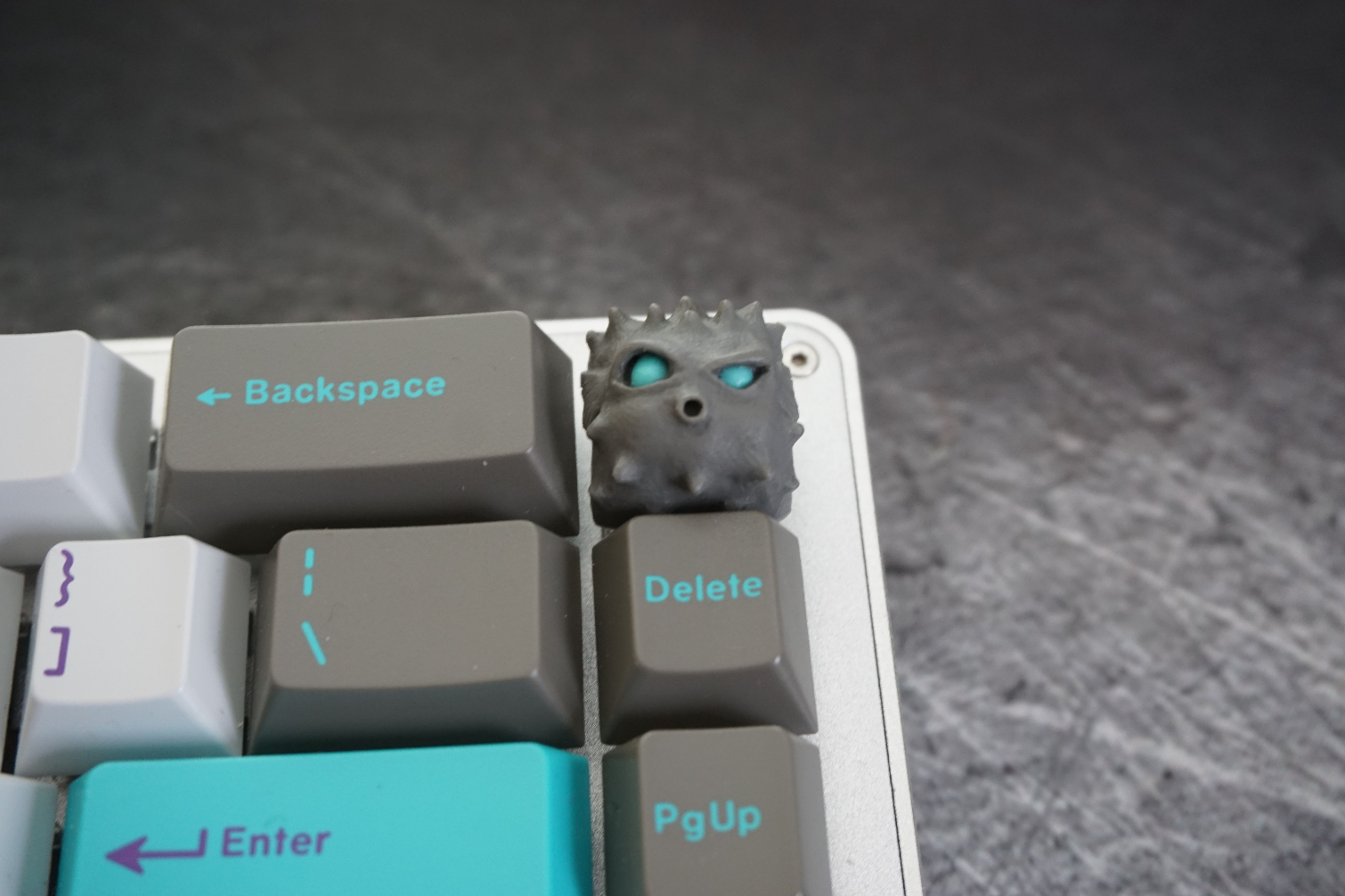
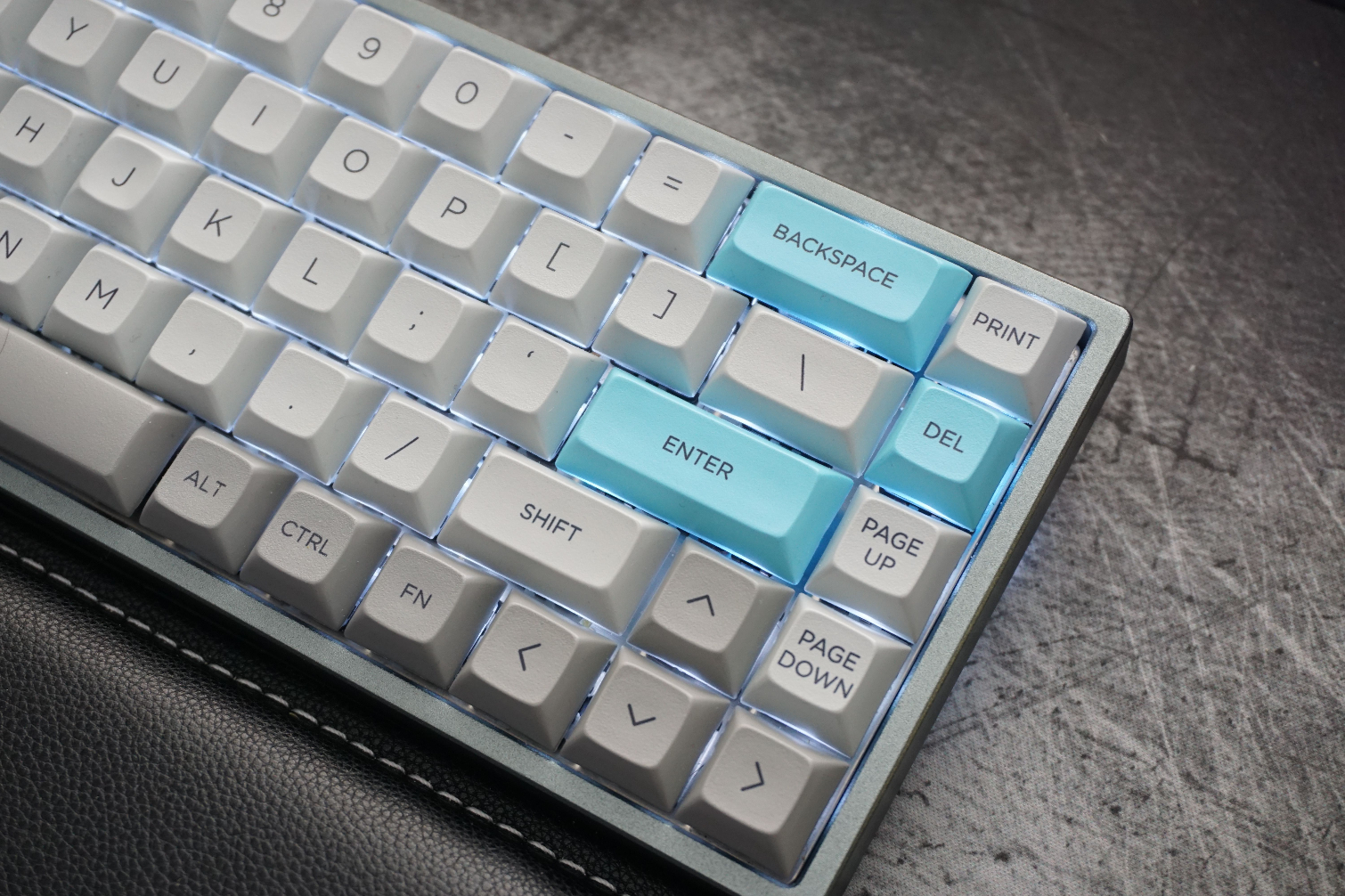
Custom Keysets
A full keyset comes with its own distinct supply issues. Producing a full set of keycaps requires machinery that regular people simply don't have. So, companies that exist to produce keycaps for industrial machinery and retail POS consoles are contracted to make the fancy custom sets enthusiasts are after. Even the most popular sets are a drop in the bucket compared to keycaps made for enterprise customers—enthusiasts are a tiny percentage of the business of making keycaps. So, we need to resort to group buys.
Get Tom's Hardware's best news and in-depth reviews, straight to your inbox.
A group buy is a bit like a pre-order, except it's the buyer (you) taking the risk instead of a retailer. Many group buys are run by individuals on forums, but there are also group buys operating on sites like Massdrop and a myriad of smaller operations like KeyClack and The Van Keyboards.
In a group buy, you and a bunch of other people bundle your orders for a keyset and send the money to the organizer, who places the order. The group buy usually needs to hit a minimum order quantity (MOQ) before it will be produced—manufacturers aren't going to set up tooling to make 20 sets of keycaps, after all. So, you and a few hundred people pay your money, and some months later the keycaps are delivered fresh off the production line.
The best case scenario with keyset group buys is that you get your keycaps in three or four months. However, delays are common, and some buyers have waited a year or more for to be delivered. A few group buys were such a mess that people never got their caps at all.
Just like with artisan caps, you're essentially out of luck if you miss the original sale. Because these are limited production runs, you can't just head over to a website and buy them. Well, that's not always true; some high-quality sets are sold on sites like Pimp My Keyboard and Originative, but they aren't always in stock. The most popular sets are only available in limited quantities anyway.
The Keycap Economy
Let's say the RNG gods are not with you, and you don't get the chance to buy that artisan keycap you've been craving. You may still be able to get your hands on it, but it won't be easy. The rarity of many keycaps makes them highly valued—so much so that your money might not be any good. Instead, you have to trade other rare artisan caps. Oh, but you don't have any of those? Therein lies the problem.
You can't just jump into artisan keycap collecting one day and get the all caps you want the next. No, you have to win some raffles first. People sometimes join raffles for caps they don't even want to use because they know those caps will be good trading fodder. It can take weeks or months to build up a respectable collection via trades and raffle wins.
Combined with the extremely limited supply, the dollar value of some keycaps is obscenely high. If someone posts a Kosmonavt or Clack skull on a buy/sell/trade forum for $300, it will sell within minutes. People almost never do that, though, because there's nowhere you can go and just buy a high-quality artisan keycap whenever you want. If you're into collecting these things, you want more of them rather than fewer, and even a large sum of money is not guaranteed to get you the caps you want
The high value and rarity of artisan keycaps has led some unscrupulous individuals to try and make a quick buck. Just as there are counterfeit Rolex watches floating around the internet, the same is true of counterfeit artisan caps. They're usually of lower quality, but they might look the same in pictures, and a new collector could easily be fooled. That's why some makers have started including certificates of authenticity with their keycaps.
Just a step above the counterfeiters are those who copy popular designs, but are open about it—they’re reproductions, if you will. These caps are usually stamped to indicate they aren't the "real" version. Once a sculpt gets popular, they become nearly impossible to get. So, some people are willing to pay a few bucks for a very similar keycap. It's like buying costume jewelry instead of the real thing.
Full keysets sometimes end up with the same inflated value as artisan caps, but not to the same degree. This is more common when there are lengthy delays or mismanagement that cause people to cancel their orders. With a limited supply of sets and no way to have more made, they can become ridiculously valuable. Anyone who sticks it out and actually gets the keyset can resell them for a tidy profit. However, many owners of rare keysets will only trade them (you guessed it) for other rare keysets.
You're more likely to see people offering to sell hard to find keysets for (a lot of) cash. A keyset that costs $100 during the group buy might go for two or three times that if it ends up being popular. A few older sets like Penumbra SA and GMK HyperFuse have regularly sold for more than $500, but don't think you can just put a keyset in the closet and cash in later—you have to time the market. For example, HyperFuse was worth many hundreds of dollars for a while, but then the designer ran a second round and the resale price tanked.
It's not a conspiracy, it's a niche
Despite the high barrier to entry, the people designing these keycaps aren't doing it to spite newbies. Even as this hobby has increased in popularity, it's far from a reliable business. Artisans rarely make a living from making keycaps, so they can't just pump out handmade items all day for you to buy. Likewise, keycap manufacturers do most of their business with companies making computers, POS systems, and other devices that need keycaps in bulk. Group buy orders are a small slice of the pie.
This inevitably leads to a constrained supply, high resale prices, and the barter system for keycaps. It's not ideal, but it can end up being a fun adventure when you set out to find the perfect keycap and the RNG gods smile upon you, or you manage to put together just the right trade.
